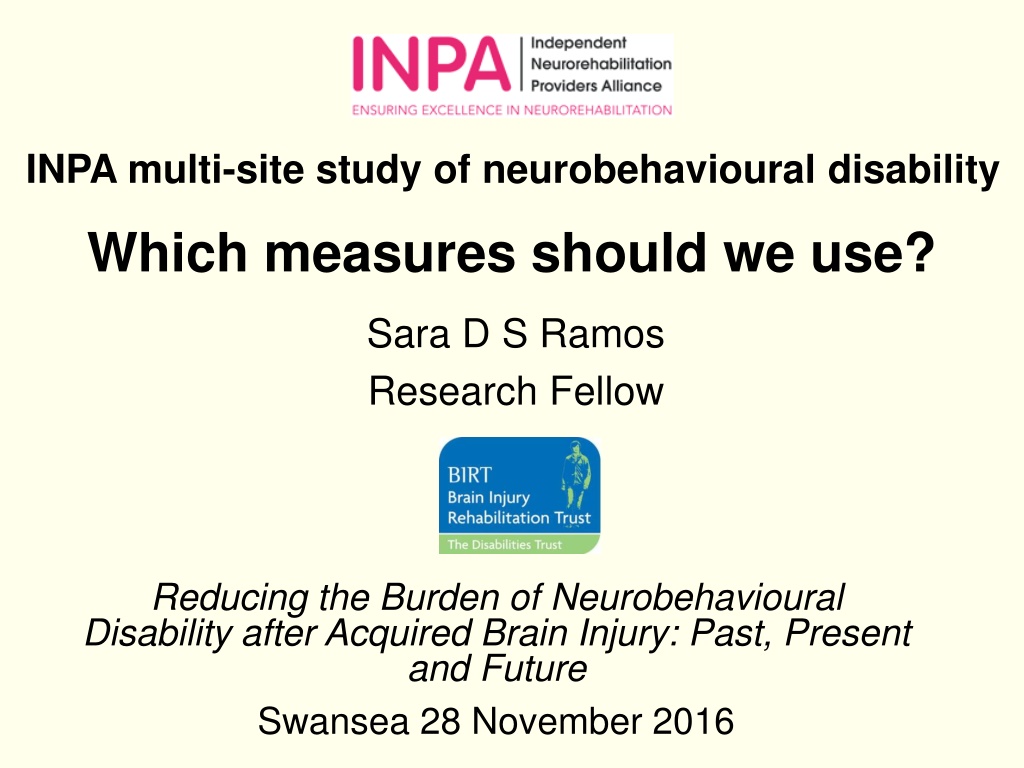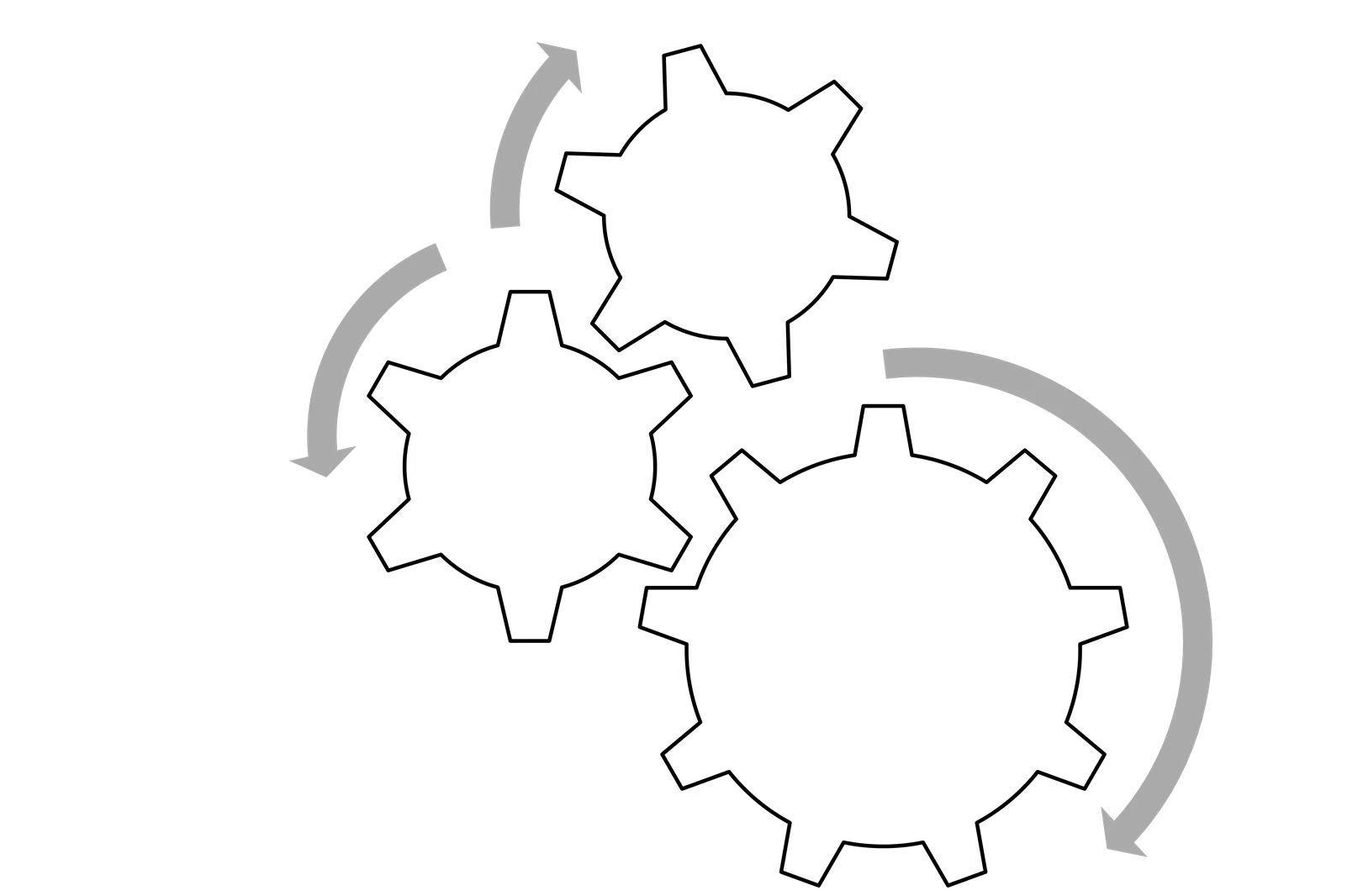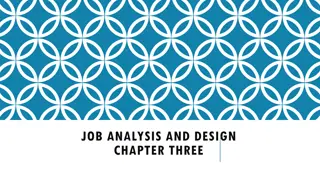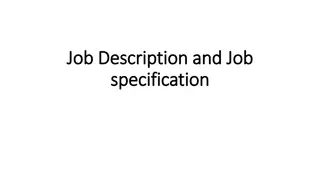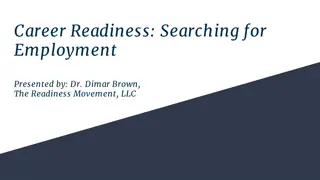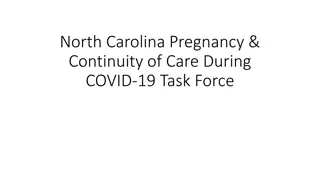Innovation and Job Change in North Carolina
The content discusses innovation, job change, and the evolving economy in North Carolina. Insights on preparing students for future jobs, loss of traditional manufacturing jobs, and the emergence of new technologies and industries are explored. The focus is on the impact of innovation on creating new products, services, and job opportunities in the state.
Download Presentation

Please find below an Image/Link to download the presentation.
The content on the website is provided AS IS for your information and personal use only. It may not be sold, licensed, or shared on other websites without obtaining consent from the author. Download presentation by click this link. If you encounter any issues during the download, it is possible that the publisher has removed the file from their server.
E N D
Presentation Transcript
INPA multi-site study of neurobehavioural disability Which measures should we use? Sara D S Ramos Research Fellow Reducing the Burden of Neurobehavioural Disability after Acquired Brain Injury: Past, Present and Future Swansea 28 November 2016
What are we measuring? Outcomes Inputs Neurobehavioural disability Which measures should we use?
Track progress Ethical practice Determine treatment need Determine overall functioning Benchmarking Research Inform plan of care Marketing Enhance communication Required by stakeholder Hatfield & Ogles (2004) Professional Psychology Research & Practice, 35 (5) Jette (2009). Physical Therapy, 89 (2) Which measures should we use?
Which ones could be used? 746 pages http://www.tbims.org/combi/ http://www.rehabmeasures.org/
Which ones are being used? Category Examples Motor function Mobility Upper limb Global disability Modified Barthel Index Original Barthel Index FIM FIM+FAM Nottingham EADL General Health Questionnaire Inpatient rehabilitation Cognitive and behavioural units Category Global Examples Glasgow Outcome Scale FIM+FAM Neurobehavioural Rating Scale Neuropsychiatric Inventory Health of the Nation Outcome Scale Overt Aggression Scale MPAI-4 Motricity index 10 walk 9-hole peg test Behavioural EADLs Agitation and aggression Psychosocial outcome Vocational independence General Health Pender & Fleminger (1999) Neuropsychological Rehabilitation, 9 (3/4) Turner-Stokes (1999) Neuropsychological Rehabilitation, 9 (3/4) Turner-Stokes & Turner-Stokes (1997) Clinical Rehabilitation, 11 Which measures should we use?
What? Why? Symptoms Disability Intervention target How? To measure outcome To show change To measure clinical input Which measures should we use?
The INPA multi-site study of neurobehavioural disability Which measures should we use?
Cognitive The term that has grown in use to denote this complex, subtle, yet pervasive constellation of cognitive-behaviour changes is neurobehavioural disability . Behavioural Emotional Personality changes Poor social judgement Labile mood Poor impulse control Poor insight Executive dysfunction Attention deficits - Wood (2001), p. 4 Which measures should we use?
The INPA multi-site study of neurobehavioural disability 14 services 299 admissions 6 measures Which measures should we use?
The INPA multi-site study of neurobehavioural disability Measures HoNOS-ABI Health of the Nation Outcome Scale FIM+FAM Functional Independence + Functional Assessment Measure SASNOS Saint Andrews-Swansea Neurobehavioural Outcomes Scale MPAI-4 Mayo Portland Adaptability Inventory (version 4) SRS Supervision Rating Scale RCS-E Rehabilitation Complexity Scale-Extended Which measures should we use?
The INPA multi-site study of neurobehavioural disability Method Ratings collected at two time points for the all measures Except RCS-E (gathered fortnightly) Raw scores converted into t-scores when available Sub-scale scores used for FIM+FAM, MPAI-4, SASNOS and RCS-E Which measures should we use?
The INPA multi-site study of neurobehavioural disability The INPA multi-site study of neurobehavioural disability Results Age and gender M = 43.54, SD = 15.59 Which measures should we use?
Diagnosis TBI CVA Infarct Haemorrhagic stroke Sub-arachnoid haemorrhage Other stroke Anoxia Inflammatory Intoxication Tumour Other (Missing) N 115 51 13 14 5 19 28 19 8 2 26 (23) Valid % 46.2 20.5 5.2 5.6 1.8 7.0 11.2 7.6 3.2 0.7 10.4 (8.8)
The INPA multi-site study of neurobehavioural disability Time Since Injury Median = 8 months M = 49.02 SD = 92.69 30% within 3 months 62% within 12 months 71% within 24 months Which measures should we use?
The INPA multi-site study of neurobehavioural disability Total Scores on Admission Measure (Reference) HoNOS (36-48) FIM+FAM (30-150) SASNOS (30-40) MPAI-4 (50-60) Mean (SD) 16.97 (6.99) 122.39 (46.95) 37.41 (12.96) 51.82 (8.98) Median 16 134 38 53 SRS (4-13) RCS-E ( 10) - 8 11.93 (3.98) 12
Percent scoring within moderate to severe disability 100 90 80 70 Percent 60 50 40 30 20 10 0 RCS Medical RCS Nursing SASNOS Cognition HoNOS SRS FIM+FAM Motor FIM+FAM Cognitive MPAI Abilities SASNOS Inhibition RCS Risk FIM+FAM EADL RCS Equipment RCS Care SASNOS Interpersonal SASNOS Aggression MPAI Adjustment MPAI Participation RCS Therapy Disciplines RCS Therapy Intensity SASNOS Communication Which measures should we use?
Percent scoring within moderate to severe disability 100 90 80 70 60 Percent 50 40 30 20 Neurobehavioural Medical 10 0 SASNOS Aggression RCS Medical HoNOS SRS FIM+FAM EADL SASNOS Communication RCS Care MPAI Abilities MPAI Adjustment RCS Risk RCS Equipment SASNOS Inhibition RCS Nursing RCS Therapy Intensity FIM+FAM Motor FIM+FAM Cognitive SASNOS Interpersonal SASNOS Cognition MPAI Participation RCS Therapy Disciplines Which measures should we use?
1 2 3 4 5 6 7 8 9 10 11 12 13 14 15 16 17 18 19 1. FIM+FAM Motor - 2. FIM+FAM Cognitive - Making sense of a Making sense of a puzzle puzzle 3. FIM+FAM EADL - 4. SASNOS Interpersonal - 5. SASNOS Cognition - 6. SASNOS Inhibition - 7. SASNOS Aggression - 8. SASNOS Communication - 9. MPAI-4 Ability - 10. MPAI-4 Adjustment - 11. MPAI-4 Participation - 12. HONOS-ABI - 13. SRS - 14. RCS Care - 15. RCS Risk - 16. RCS Nursing - 17. RCS Medical - 18. RCS Therapy Disciplines - 19. RCS Therapy Intensity - 20. RCS Equipment
1 2 3 4 5 6 7 8 9 10 11 12 13 14 15 16 17 18 19 1. FIM+FAM Motor - 2. FIM+FAM Cognitive - Some overlap Some overlap for areas of for areas of impairment impairment 3. FIM+FAM EADL - 4. SASNOS Interpersonal - 5. SASNOS Cognition - 6. SASNOS Inhibition - 7. SASNOS Aggression - 8. SASNOS Communication - 9. MPAI-4 Ability - 10. MPAI-4 Adjustment - 11. MPAI-4 Participation - 12. HONOS-ABI - 13. SRS - - 14. RCS Care - 15. RCS Risk - 16. RCS Nursing - 17. RCS Medical 18. RCS Therapy Disciplines - - 19. RCS Therapy Intensity 20. RCS Equipment
1 2 3 4 5 6 7 8 9 10 11 12 13 14 15 16 17 18 19 1. FIM+FAM Motor - Interpersonal Interpersonal relationships relationships and cognition and cognition are associated are associated with everyday with everyday function. function. 2. FIM+FAM Cognitive - 3. FIM+FAM EADL - 4. SASNOS Interpersonal - 5. SASNOS Cognition - 6. SASNOS Inhibition - 7. SASNOS Aggression - 8. SASNOS Communication - 9. MPAI-4 Ability - 10. MPAI-4 Adjustment - 11. MPAI-4 Participation - 12. HONOS-ABI - 13. SRS - - 14. RCS Care - 15. RCS Risk - 16. RCS Nursing - 17. RCS Medical 18. RCS Therapy Disciplines - - 19. RCS Therapy Intensity 20. RCS Equipment
1 2 3 4 5 6 7 8 9 10 11 12 13 14 15 16 17 18 19 1. FIM+FAM Motor - Neurobehavioural Neurobehavioural disability is disability is associated associated with supervision supervision needs. needs. 2. FIM+FAM Cognitive - 3. FIM+FAM EADL - with 4. SASNOS Interpersonal - 5. SASNOS Cognition - 6. SASNOS Inhibition - 7. SASNOS Aggression - 8. SASNOS Communication - 9. MPAI-4 Ability - 10. MPAI-4 Adjustment - 11. MPAI-4 Participation - 12. HONOS-ABI - 13. SRS - - 14. RCS Care - 15. RCS Risk - 16. RCS Nursing - 17. RCS Medical 18. RCS Therapy Disciplines - - 19. RCS Therapy Intensity 20. RCS Equipment
Showing change Which measures should we use?
So, which measures should we use? What? FIM+FAM Cognitive FIM+ FAM EADL SASNOS Interpersonal SASNOS Cognition MPAI Adjustment MPAI Participation Which measures should we use?
So, which measures should we use? What? FIM+FAM Cognitive FIM+ FAM EADL SASNOS Interpersonal SASNOS Cognition MPAI Adjustment MPAI Participation Which measures should we use?
Specifically neurobehavioural? What? SASNOS Cognition SASNOS Inhibition MPAI Adjustment RCS Risk Which measures should we use?
So, which measures should we use? Why? Clinical Input Change RCS Therapy* SRS RCS Care/Risk MPAI Adjustment FIM+FAM EADL* SASNOS Cognition SASNOS Interpersonal Which measures should we use?
So, which measures should we use? Why? Clinical Input Change RCS Therapy* SRS RCS Care/Risk MPAI Adjustment FIM+FAM EADL* SASNOS Cognition SASNOS Interpersonal Which measures should we use?
Working group Working group Nick Alderman Kristy Bolter Keith Jenkins Caroline Knight Mark Butler and others Which measures should we use?
Thank you! Thank you! sara.dasilvaramos@thedtgroup.org Which measures should we use?
